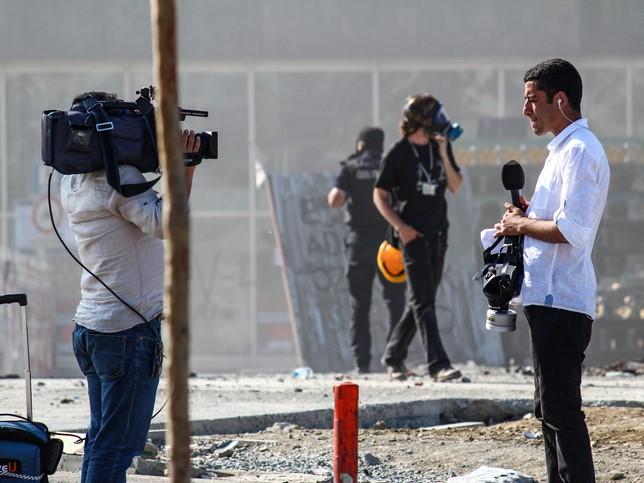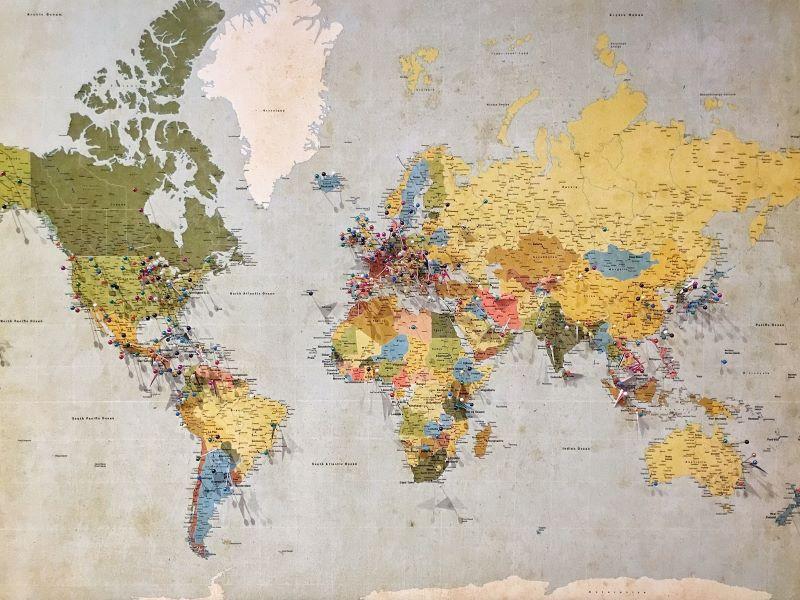
I ran the BBC World Service – it showed me how universities can be truly global

My experience leading two of the UK’s globally renowned knowledge-based institutions (the BBC World Service and the Open University) has convinced me that UK higher education is still not doing enough to create a truly global education experience. Students are moving into globalised careers, but the universities they’re studying in remain insufficiently globalised.
A significant aspect of my role at the BBC was to lead its digital transformation and develop its global outlook, the intention being to transition the traditional TV and radio broadcaster known as “Auntie Beeb” into the international, modern, digital behemoth it is today.
A key factor in this development was an understanding that in order to evolve effectively within the digital tech space and accurately and authentically reflect the world around us, we had to develop genuinely global content and a truly global mindset.
But what did this look like?
During my time at the World Service, we realised that vast technological advancements, combined with a new understanding of the viewer/reader as a global citizen, required us to allow the world’s journalists to tell the world’s stories. This marked a sea change in the way news and current affairs content was produced.
Previously it was mainly white male British journalists narrating the stories of people around the world from a newsroom in London. So we began to actively recruit international journalists to tell these stories, from the countries in which they were happening, as they happened.
- Strangers in a strange land: how supervisors can support international research students
- How to ensure your university’s branding isn’t as bland as blancmange
- How does national culture affect the adoption of learning technology?
This approach confirmed our belief that the development of intrinsically global content and experiences was the key to success. We confirmed this sentiment by tracking the brand perception of the BBC at the time, which told us that non-UK viewers appreciated watching international news that aimed to reflect a real picture of the world from the widest perspective. And this ethos is equally applicable to the world of education.
However, to date, and despite the increasing internationalisation of the way we live our lives, the standard educational experience is still, by and large, grounded in “bricks and mortar” and in-country learning. For education to become the global experience many believe it needs to be, we need to move beyond the boundaries of a traditional in-person university experience and actively globalise the choices available to students.
Many may argue that the sector has already done a lot of internationalisation in recent decades: for example, the recruitment of more international faculty members. Nonetheless, it’s my belief that HE in the UK is a long way from being a truly global education experience.
But what do I mean by this? I mean learning from educators with a wide variety of international backgrounds, but I also mean learning from student peers who could also be from anywhere in the world. Obviously, there are many international teachers and students in the UK, but they tend to come from a relatively narrow range of countries – and an even narrower range of people from within those countries – that can provide the economic resources to travel and live abroad.
The online world breaks down international borders in a way that’s far more democratic than the traditional in-person learning experience ever could be. For instance, in medical education, scholarship students in developing countries can be sponsored by organisations with the intention that they remain and study in their home countries, where their knowledge and expertise are needed most.
Imagine being a doctor in the UK, perhaps studying for an online MSc in women’s health and sexual and reproductive medicine, and learning alongside students in sub-Saharan Africa, whose clinical experiences will be so vastly different from your own. Nearly two years of the pandemic has surely emphasised for us all the truly global nature of the threats the world faces.
We know that valuable educative experiences come from being part of a community of learning – and learning from each other. It’s this interaction between students, as well as between students and faculty, that delivers the global learning/education experience that the sector needs to move towards.
But how can this be achieved in practical terms? In many ways the globalisation of teaching and learning can derive much from the success of international research practices, where cross-border collaboration is already well established.
Drawing on this, a globalisation plan for teaching and learning might include the following: academic partnerships with international universities to allow for remote teaching by appropriate academics; direct employment of international full- and part-time faculty members irrespective of their location – for some roles there should be no requirement for attendance or working in the UK; and, finally, universities should look to directly recruit students who are unable to attend in person and potentially offer reduced prices or scholarships to enable the creation of a genuinely global learning community.
With such high numbers of international students in the marketplace, a one-dimensional, Brit-centric approach to education, online or otherwise, would likely surrender the sector into irrelevance – much like the BBC might have experienced if it had continued in its dated, analogue direction.
When it comes to the future of learning, globalised content, communicated by universal educators to an international student base, will be key. And what else is clear is that digital learning modes can facilitate this in a way that a quasi-global, in-person learning experience in a traditional UK university could never deliver.
Peter Horrocks is the chair of postgraduate online learning provider Learna. He was formerly vice-chancellor of the Open University. Before that, he worked for the BBC, where he held roles including head of current affairs, head of TV news, and head of the multimedia newsroom. He was director of the BBC World Service from 2009 to 2014.
If you found this interesting and want advice and insight from academics and university staff delivered directly to your inbox each week, sign up for the THE Campus newsletter.


